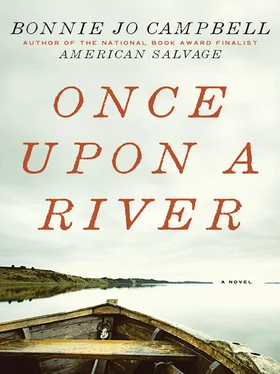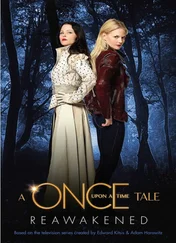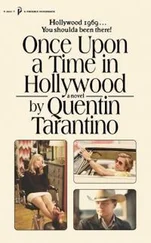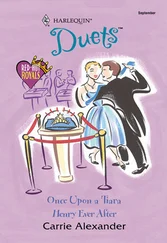1 ...7 8 9 11 12 13 ...17 She warmed her hands in the flames, and then took the axe to the other chairs. As the fire crackled, she stripped off her wet clothes and wrapped herself in a blanket. The wood from the chairs created such heat that the creosote must have burned clean out of the chimney. Eventually she put on two split logs from the screen porch and climbed into her daddy’s bed. As she went to sleep, she smelled cigarette smoke and sulfur from matches, spice shaving cream, and the mildew of their river house. She smelled the river in every corner of the house, in every molecule of the air, in every pore of her own body. Even the fire smelled of the river, even the flames.
THE FOLLOWING DAY, Junior Murray came into the house without knocking, something that was normal within the Murray family, though it had driven Margo’s daddy crazy.
“It’s after noon. Everybody’s worried about you,” he said, sitting on the edge of the bed where she was lying. “I came over to tell you that the cops are on the way.”
“What?”
“Ricky’s working in the township office, so he heard they were coming over. That’s Ricky in the kitchen.”
“Why are they coming here?” Margo heard a vehicle pull into the driveway.
Junior said, “That sounds like a cop car to me. They probably want to ask you a few more questions. They have to make sure you’re okay. It’s the law that cops have to hassle people who don’t want them around.”
“Cops are here,” Ricky yelled from the other room. Ricky was their youngest uncle, Cal’s littlest brother, twenty years old. He was studying to be a paralegal.
Margo wrapped the covers around herself, sat up, and leaned against her cousin. She was afraid that Junior would go away if she didn’t say something. “I’ve missed you,” she whispered.
“I’ve missed you, too, Margo,” Junior said and put an arm around her. “I’ve missed everything and everybody. It makes me suicidal to even think about going back to that academy.” Someone knocked on the door, and when voices sounded in the next room, Junior stood up. “You’d better cover up those tiny titties before you come out.”
Margo adjusted her blanket. When he left the room, she put on a pair of Crane’s jeans, one of his turtlenecks, and a flannel shirt. She went into the kitchen, where two officers were talking to Junior, who was taller than either of them. The smaller cop, whom everyone at school knew as Officer Mike, said, “We wanted to make sure you were okay, Margaret.”
“See, everybody was worried about you, Margaret,” Junior said. Margo had the feeling he was making fun of the cop, but she didn’t understand exactly how.
“We need to look around, see if there’s anything here to help us figure out why Mr. Crane would have been shooting at Cal and Billy Murray. Did he keep anything like a diary?”
Margo shook her head. The most they would find from Crane would be a grocery list jotted on an empty matchbook. His anger at Cal would not be written on anything they could find.
“Any other firearms here? Any unregistered pistols? Can we look around?”
She shrugged, and they took that as a yes.
“Cal Murray said if your daddy didn’t have any money, he’d pay funeral expenses,” said the bigger cop, when the two had given up on finding anything of interest. “Can we give you a ride to Cal’s?”
She shook her head.
“Are you sure?”
“I want to row my boat over there,” she said. When they kept looking at her, she began to fear they wouldn’t leave. “My mom will come to get me. When she hears about my dad.”
“We’ll get her over to our house, Officer Mike,” Junior said, adopting a trusty Boy Scout demeanor.
“Let us know as soon as your mother contacts you,” said Officer Mike. “We may need to talk with her. And we’ll contact you again in a few days if we need an additional statement.”
“And if there’s anything for your ma in the estate, we’ll have to track her down,” Ricky said.
Margo knew there’d be no estate. Crane still owed payments to a guy on his ten-year-old Ford, and he owed the dentist, too. He had sent Margo to get her teeth cleaned every six months—even when he had been drunk and unemployed, he’d sent her with a twenty-dollar bill against the account.
“There won’t be a trial, will there?” Junior said.
“Nobody’s denying what your brother did was self-defense, but he did kill a man. Someone’s evaluating him now.”
“I’m sorry, Margaret,” Officer Mike said. He held up a business card and placed it on the counter. “Call my number if you need a ride to Cal’s. Or if you need anything.”
“We’re sorry for your loss,” the bigger cop said.
When they closed the door, Ricky Murray spoke up. “We ought to find your dad’s papers, any official documents. If he’s got a will, you’ll want to locate that.”
Margo’s eyes were swollen from crying, and when she leaned down beside her father’s bed, her head ached. From beneath it, she produced an army-green tin box. It felt like a violation putting it on the kitchen table and opening the lid in front of Ricky and Junior. The first thing she saw inside was her cut-off ponytail, wrapped in wax paper. In a bulging envelope, she found dozens of photos of her mother smiling ear-to-ear at the camera. While Luanne had rarely smiled enough to show teeth in real life, she had smiled that fake way for every camera snap. There were no photos of her parents together, not even a wedding photo. The only picture of Crane was a tiny dark image on his Murray Metal Fabricating employee ID card.
A business-sized envelope contained a piece of lined yellow paper on which was handwritten, Last Will and Testament. Please cremate me and don’t waste money on any service. Give everything I have to my wife and daughter. Sorry it’s not much. Signed, in full faculties, Bernard Crane, October 14, 1971. Margo would have been almost eight years old then. Nothing bad had happened yet.
“That’s clear and simple,” Junior said. “Are the cops all the way out the driveway?”
“The Man is gone,” Ricky said.
“Then it’s time to light up.” Junior dug something out of the pocket of his jean jacket. It was a plastic baggie containing several joints. He sat on the kitchen table. “What happened to your chairs?”
Margo shrugged and sat next to him.
“They shouldn’t have let you come home last night.” Junior straightened out one joint carefully and lit it with a white lighter. He took a long toke and held it out to her.
“I don’t know.” Margo let her legs dangle beside Junior’s. She noticed how her cousin’s hair had been cut short at the military school, so it no longer curled down his neck. She’d heard last night that he’d be going back to the academy again right after the holiday weekend, so this might be her only chance to see him.
While still holding his breath, he elbowed her and said in a squeaky voice, “This will help you. I stayed high for three months when Grandpa died.”
Margo accepted the joint, took a long draw, and coughed. She passed it to Ricky, who inhaled as he studied the will, turning it over several times, though the back was blank.
“Too bad this will isn’t notarized,” Ricky said.
The next time Junior passed her the joint, Margo inhaled deeply and held the smoke. She didn’t like to feel disoriented, but she hoped the pot would dull her feelings. They passed the joint in silence until it was gone. Then Ricky began to rifle through the papers in a more serious way. “Divorce papers,” he said. “Finalized eight months ago.”
Margo wished she could puff on the joint once more. Crane had never mentioned anything about a divorce.
Читать дальше












